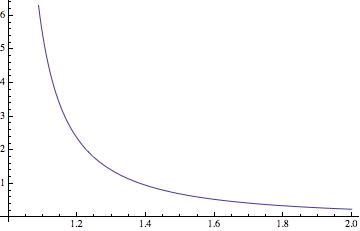The problem might be the singularity at the lower integration boundary. When x equals a the denominators become zero. You can also see that when you plot the integrand for some values a and b:
Plot[(1/Sqrt[(x - 1) (x^2 - a^2)]) - (1/Sqrt[(x + 1) (x^2 - a^2)]) /. a -> 1, {x, 1, 2}]

You can also check that with Wolfram alpha:
WolframAlpha["Domain of (1/Sqrt[(x - 1) (x^2 - a^2)]) - (1/Sqrt[(x + \
1) (x^2 - a^2)])", {{"Result", 1}, "Output"}]
This gives:
HoldComplete[(a < -1 && (-Sqrt[a^2] < x < -1 ||
x > Sqrt[a^2])) || (-1 <= a <= 1 &&
x > 1) || (a > 1 && (-Sqrt[a^2] < x < -1 || x > Sqrt[a^2]))]
When you solve the indefinite integral:
Integrate[(1/Sqrt[(x - 1) (x^2 - a^2)]) - 1/Sqrt[(x + 1) (x^2 - a^2)], x]
you obtain
(2 I Sqrt[1 - (-1 + a)/(-1 + x)] Sqrt[1 + (1 + a)/(-1 + x)] (-1 + x)^(3/2) Sqrt[-a^2 + x^2] EllipticF[I ArcSinh[Sqrt[1 + a]/Sqrt[-1 + x]](1 - a)/(1 + a)])/(Sqrt[1 + a] Sqrt[1 - a^2 + 2 (-1 + x) + (-1 + x)^2]Sqrt[(-1 + x) (-a^2 + x^2)]) - (2 I (1 + x)^(3/2) Sqrt[-a^2 + x^2] Sqrt[1 + (-1 + a)/(1 + x)] Sqrt[1 - (1 + a)/(1 + x)] EllipticF[I ArcSinh[Sqrt[-1 - a]/Sqrt[1 + x]], (1 - a)/(1 + a)])/(Sqrt[-1 - a] Sqrt[(1 + x) (-a^2 + x^2)] Sqrt[1 - a^2 - 2 (1 + x) + (1 + x)^2])
which is also clearly not defined at x==1.
Cheers, Marco